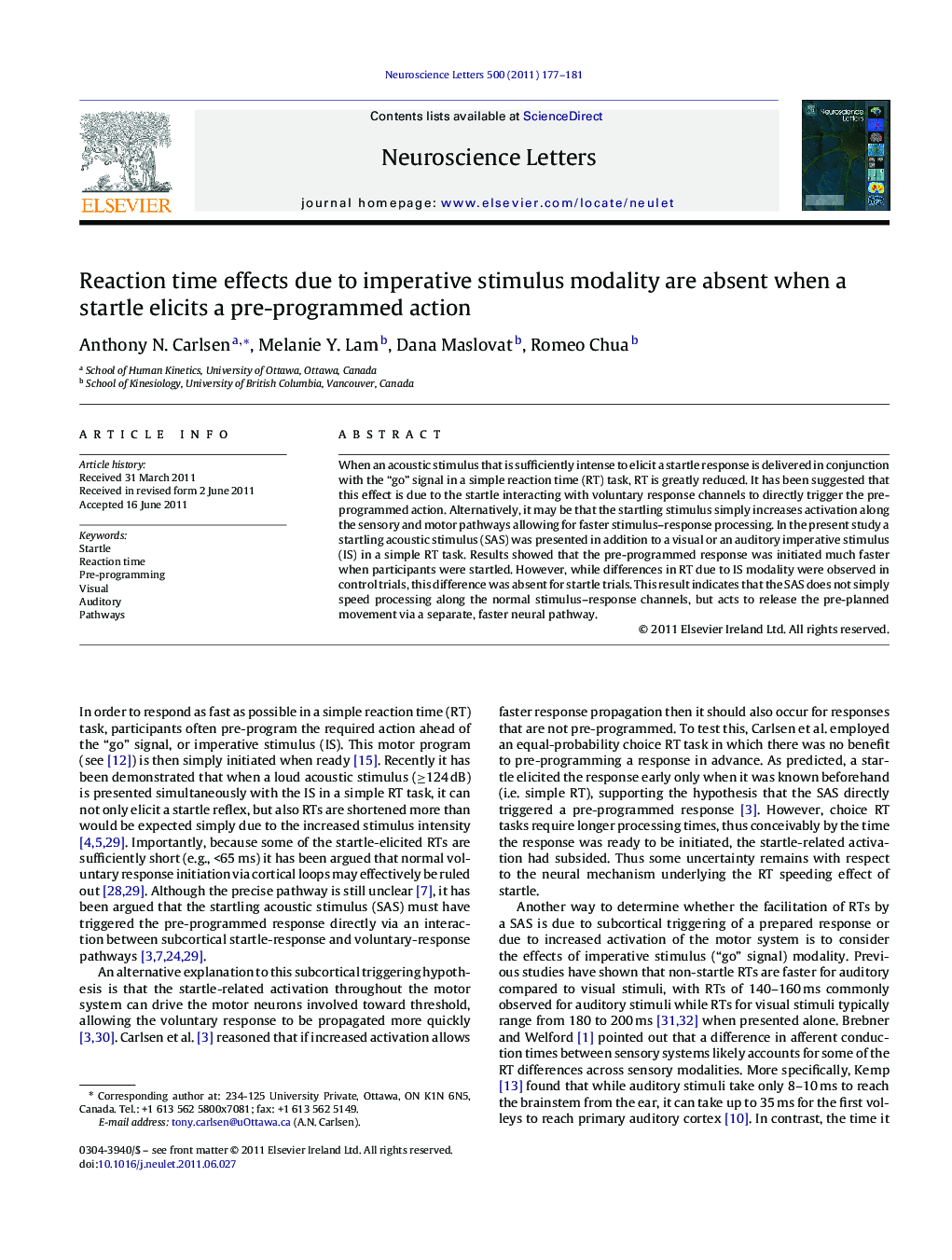| کد مقاله | کد نشریه | سال انتشار | مقاله انگلیسی | نسخه تمام متن |
|---|---|---|---|---|
| 4345232 | 1615170 | 2011 | 5 صفحه PDF | دانلود رایگان |

When an acoustic stimulus that is sufficiently intense to elicit a startle response is delivered in conjunction with the “go” signal in a simple reaction time (RT) task, RT is greatly reduced. It has been suggested that this effect is due to the startle interacting with voluntary response channels to directly trigger the pre-programmed action. Alternatively, it may be that the startling stimulus simply increases activation along the sensory and motor pathways allowing for faster stimulus–response processing. In the present study a startling acoustic stimulus (SAS) was presented in addition to a visual or an auditory imperative stimulus (IS) in a simple RT task. Results showed that the pre-programmed response was initiated much faster when participants were startled. However, while differences in RT due to IS modality were observed in control trials, this difference was absent for startle trials. This result indicates that the SAS does not simply speed processing along the normal stimulus–response channels, but acts to release the pre-planned movement via a separate, faster neural pathway.
• Subjects performed a simple RT task with either an acoustic or visual “go” signal.
• A startling acoustic stimulus was delivered along with the go signal on some trials.
• Control RT was different between modalities but startle produced similarly fast RTs.
• Startle speeds RT by triggering a prepared action, not via increased excitability.
Journal: Neuroscience Letters - Volume 500, Issue 3, 18 August 2011, Pages 177–181